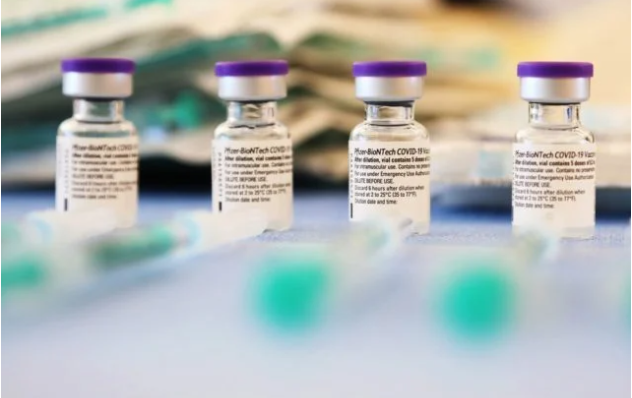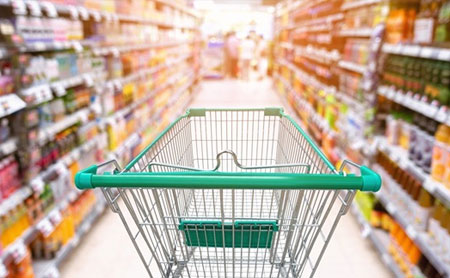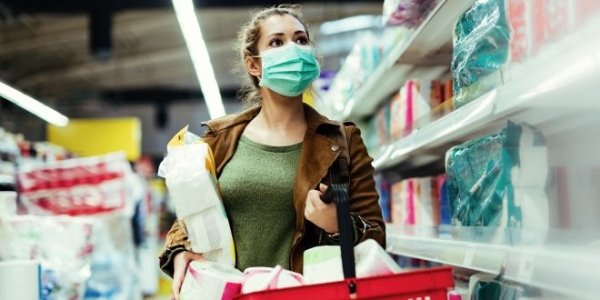A delay in South Africa’s Covid-19 vaccination programme could lead to a third wave of the virus, the Sunday Times reports.
Vaccinologist professor Shabir Madhi told the paper that the government was late to the game in acquiring a vaccine, warning that another wave could resurface within three to four months.
“It seems to me that the government only started planning in early January after a media backlash,” said Madhi, who was dropped from the Covid-19 ministerial advisory committee last year.
“Even after this resurgence dies down we’ll get another one, and vaccine deployment will be too late for high-risk groups then.”
Medical experts have said it remains unclear when vaccines will arrive and how they will be rolled out, with no clear plans for their distribution.
Professor Mark Mendelson, head of infectious diseases at Groote Schuur Hospital in Cape Town, called the government’s targets “unrealistic”, given their late start.
There is still confusion about the scale of the rollout, he said. The number of people “earmarked for vaccination in phase two is 16.6 million” but to do that, 32.4-million doses will be required, “and government tells us it has procured 20 million doses (12 million from Covax) which would still leave us 12.4 million doses short, even for phase two”.
Price gouging
Government is facing heavy criticism for failing to negotiate better prices for the country’s first batch of Covid-19 vaccines – which cost more than double the rate for the European and African Unions.
According to leaked information from EU officials this week, the region is paying $2.16 (around R32) a dose for the Oxford-AstraZeneca Covid vaccine, while the African Union is getting it at $3 per dose (R45).
South Africa, meanwhile, secured its batch at $5.25 per dose (R80).
According to the City Press, critics and activists have laid the blame for this inflated pricing at the feet of the government – for failing to negotiate a better deal – and the suppliers, who they accuse of price gouging during a pandemic.
Department of Health deputy director-general, Dr Anben Pillay, said that when the pricing was questioned, the suppliers stated that South Africa is a middle-high income country, and that is the tiered rate for the doses.
The EU received better pricing because it paid for the research and development of the vaccine, he said.
Government was also reportedly told that if it didn’t want the doses as that price, the supplier would be happy to take it elsewhere.
“What we didn’t want to do, is push the price debate to the extent where we don’t have access (to the vaccine). It’s a supplier’s game, and we don’t want to drive the price hard and then we’re put at the bottom of the list for access,” Pillay said.
Rollout strategy
President Cyril Ramaphosa said last week, that the country will get an initial 20 million doses, with the first batch of 1.5 million shots of the vaccine developed by AstraZeneca set to arrive this month.
On Monday, Department of Health officials indicated that the country had secured an additional nine million vaccines through a deal with pharmaceutical company Johnson & Johnson.
The Johnson & Johnson deal would take the total number of doses that South Africa stands to receive to around 30 million.
Bloomberg reported that South Africa’s regulator granted the health department permission to distribute the vaccine from AstraZeneca and the University of Oxford in its first nod for Covid-19 inoculations.
The National Department of Health has been recognised by the South African Health Products Regulatory Authority as a supplier of The Serum Institute of India, health minister Zweli Mkhize said in a statement late Friday.
South Africa recently struck a deal with The Serum Institute to receive its first coronavirus vaccines this month and next.
“We will, in the next coming days, engage with the public in order to give an update on the progress of the first batch of the vaccines that we committed would be received in the first quarter,” the health ministry said in Friday’s statement.
“At this stage we would like to assure South Africans that all is on track. We are working closely with all relevant stakeholders to ensure a smooth implementation of the vaccine roll-out programme.”
Rising infections
Dr Mkhize on Saturday reported 12,271 new Covid-19 cases in South Africa, taking total cases to 1,404,839. The minister also reported a further 498 deaths, pushing the death toll to 40,574.
New variants of the virus that have emerged in the UK, South Africa and Brazil are a concern, experts have warned, due to them being more contagious.
An increase in infections has led to a surge in hospitalisations and deaths in the UK and South Africa.
And worse still, UK prime minister Boris Johnson told a news conference on Friday in London, that new evidence had led the government to revise its initial view that the variant was more contagious, but not more dangerous.
It may be 30% more deadly than the original strain – or more, a government analysis found.
Drugmakers say their vaccines should still work, but some researchers warn the shots may need to be updated periodically to maintain their efficacy, Bloomberg reported.
President Ramaphosa has warned that the country is out of money, despite pledging a vaccination campaign covering 67% of the population, at a cost of approximately R20 billion. Mkhize has said that about 30% will be covered by medical insurers.
Read full article HERE





